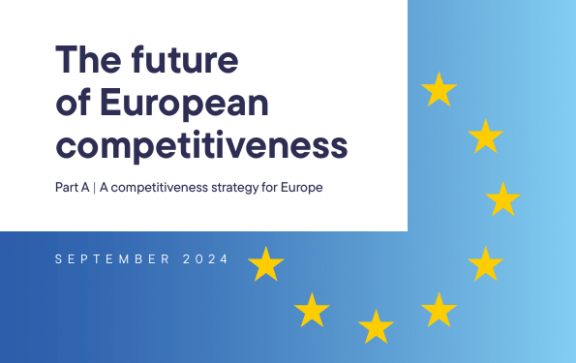IP2Innovate welcomes Draghi’s call to improve the pipeline from innovation to commercialization

IP2Innovate welcomes the report on EU competitiveness by Mario Draghi published yesterday, and in particular its emphasis on improving innovation.
The in-depth report cements competitiveness and boosting European productivity at the heart of the EU’s political agenda. It calls for Europe to improve the pipeline from innovation to commercialisation.
IP2Innovate fully agrees. One way to do that is to address the lack of proportionality considerations in patent litigation in European patent courts. Instead of granting remedies on the basis of a proportionality assessment, the default, automatic remedy is an injunction, even when the patent involves only a minor feature of a complex product.
This makes it far too easy for opportunistic patent assertion entities (PAEs) to sue productive businesses. It’s very profitable to PAEs but does nothing for the innovation process except penalise innovators and clog it up. This funnels money away from the development of new products in Europe, instead going to pay outsized legal settlements that often go far beyond what the PAE’s patent is worth.
Last year the European Commission launched a study to look at whether proportionality is being applied in Europe as well as looking into the presence and impact of PAEs in Europe.
In spring this year IP2Innovate called for the Commission to adjust the IP Rights Enforcement Directive (IPRED) in order to ensure proportionality is applied in an effective and meaningful way.
“With this new impetus from Mr Draghi we hope the European Commission will adapt the IPRED with targeted revisions that make proportionality the norm,” said Patrick Oliver, executive director of IP2Innovate.
A key aim of the Draghi report is to address issues that are holding back European competitiveness and productivity. Europe lags its key trading partners in both respects.
The US has addressed the patents issue through a Supreme Court ruling in the 2006 eBay Vs MercExchange case, which made sure courts evaluated the facts of a case before issuing a remedy. As a result it is no longer automatic for a PAE to win an injunction from a judge in the US.
“The same needs to happen in Europe. More balance in the patent system is needed to increase innovation and the take up of new technologies necessary to narrow the productivity gap between Europe and its trading partners,” Mr Oliver said.
Other blogs

Prof. Rafal Sikorski: Towards a More Orderly Application of Proportionality to Patent Injunctions in the European Union

New academic paper calls for targeted reforms of the IP rights enforcement directive to boost European competitiveness

